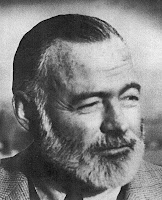
The Glass Menagerie is Tennessee Williams’s first play, and it’s easy to understand why it became so immediately successful. The narrator and protagonist of the play is the 23-year-old son, Tom, who supports the family by working in a shoe factory, a job he hates. He longs to go to sea as a Merchant Marine, and it looks like he’s finally ready to take that step, since he’s paid his Union dues rather than the light bill for the month. The mother, Amanda, lives in a dream world, talking incessantly about an afternoon in the distant past in the deep South when 17 gentlemen callers all came to pay court to her on the same Sunday afternoon. Amanda wonders how many gentlemen callers are going to visit Laura this Sunday.
The answer is basically “None,” because Laura, who’s 24, is so shy she can barely even bring herself to speak to any other people. (Also, because the whole concept of Gentlemen Callers doesn’t exist in 1930s St. Louis.) Laura dropped out of high school, and her most recent failure was to drop out of a career college—probably a school similar to Lincoln—after throwing up on the floor before a typing test. Her only interests in life are listening to her father’s old records and playing with her collection of glass animals.
Well, she has one other interest, which is in a young man she knew in high school and has on some level been daydreaming about ever since. And now Amanda has asked Tom to find a “nice young man” and “ask him out for sister”! And now the nice young man is coming to dinner! But when the night arrives, Laura’s so shy she can’t even bring herself to come to the table. Then Amanda sends Jim out with a candle (the electricity is turned off during dinner) to keep Laura company while she and Tom wash the dishes. Things move slowly at first, but then all of a sudden Laura and Jim are dancing … . (That's the perfect moment.)
I first heard this play performed (on a 33 rpm record) when I was about seven, and I felt an immediate deep connection with the Wingfield children. Why was their mother Amanda such an obnoxious nag? Now, many years later, as a single parent of nearly grown children myself, I can think of a whole lot of good reasons why she’d want to get her children to act right, make money, and get out of the house.



